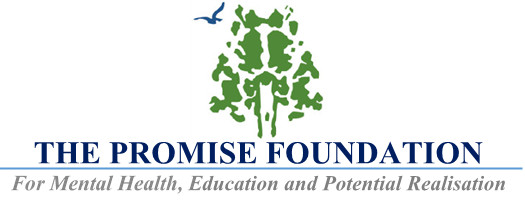"Student commits suicide after exam results.”
“Exam stress highest amongst students.”
“Are marks more important than peace of mind?"
Newspaper headlines such as these have become common place in today’s world of high competition.
Psychological Distress
Various symptoms such as sleeplessness, anxiety and depression that are seen in psychological clinics have their roots in the pressures faced by students in the classroom. Our own research and interviews with teachers and students across the country have pointed to difficulties with academics as one of the leading stress points in the Indian student’s life.
LEARNING TO LEARN
This is a Study Skills Workshop that Promise has developed for high school students. At the heart of the programme lies the understanding that learning is about meaningful engagement with the material to be learned. Drawing upon principles from cognitive and developmental psychology, Learning to Learn helps students develop skills for learning. Given below are some of the key themes of the workshop.
Attention Management

Concentration is the ability to focus one’s mind on a particular topic or task for a long enough duration of time. One of the most common study skills difficulties that students report is poor concentration during study time.
Learning to manage attention therefore requires student to:
- deal with boredom
- identify distractors and control them
- organise time to give optimal time to various activities
- learn to be calm and ‘quiet in the mind’ when studying
- learn to control negative thoughts
The Learning to Learn workshop helps students learn attention building exercises. Adapting principles from yoga, this includes techniques such as: Auditory Focusing, Focused Breathing, and Regulated Breathing.

Learning is about understanding and meaning making.
It is also about being able to remember and recall what one has learned.

STUDY SKILLS

Pedagogical Controversy
Different philosophies of education view learning differently. An important position states that comprehension is the primary purpose of learning. Others assert that memorisation is vital. Assessment stances swing between the formative and the summative approaches. While philosophies strive to establish their supremacy through policy change and reform, the child's struggles are often left unattended. Our research shows that too often teaching does not focus on explanation and supporting insight.
Skills for Comprehension and Meaning Making

All learning must begin with understanding. Material that is not understood requires a much greater effort to remember. Skills for comprehension include learning techniques for:
- accessing information
- independently extracting meaning from material to be learned.
The Learning to Learn workshop helps students learn the skill of deriving meaning from what they are studying.
Note Making

Note giving is an example of fostering passive and teacher dependent learning. Comprehension is usually low when students are given notes. Teaching the student to make notes that are accurate would contribute significantly to enhancing comprehension.
Skills for note making include skills for
- drawing information from various sources and then connecting them all together as ‘personal’ notes.
The workshop helps students learn skills to identify key concepts in a topic, make note cards, cluster information, and use visual techniques such as time lines and flow charts.
RELATED LINKS
Click here for other pages on Literacy Development:
“We have to spend at resources and time training new recruits because they don’t seem to have really grasped what they have studied.”
A sentiment often expressed from the employer side.
Career Development Crisis
Obtaining the highest marks possible and topping entrance examinations have taken priority over curiosity and engaging with knowledge. The tutorial system often replaces the school system. As a result while students are vigorously prepared to give ‘correct’ answer to questions, their knowledge and mastery of subject content is given lower priority. Students therefore enter the workforce with degrees and diplomas but this is no reflection on their skills and knowledge to engage with the actual tasks of the career they have chosen. In the long run such a stunted knowledge and skill-base affects economic development since there is poor workforce development.
Memory Training

While we may not actually forget what we have memorised, with the passage of time, the recall of what has been memorised becomes more and more difficult. Memory training therefore requires:
- carefully made notes that the student has understood
- attempting to recall the key words or key phrases from note cards
- repetition until recall is complete
Scheduling Skills

Learning to manage time is a vital aspect of effective study skills. Developing a timetable involves:
- Working out how much time is available for studies per week
- Deciding how much time each subject requires per week
- Spreading out the subjects over the week.


